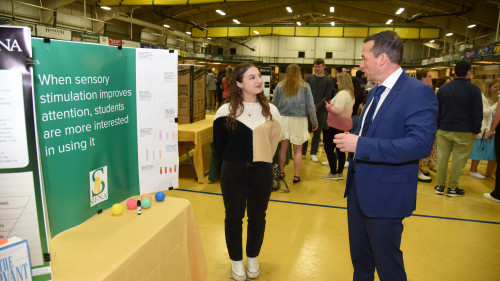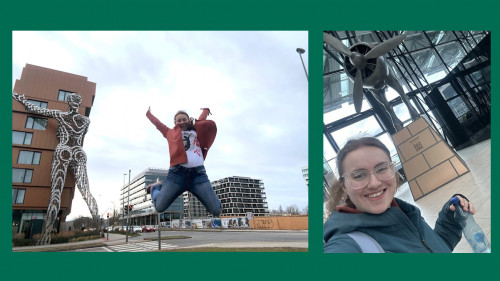
To see all photos from the event, click here.
Vintage photographs. Important books and papers. Taped oral histories. Even three-dimensional items such as a uniform or architectural model.
Information about the past and present comes in many different forms and is communicated through many different modes. To help students and faculty preserve and access such items for their research and teaching, Siena College has opened a new Digital Scholarship Center.
Located in the lower level of the Standish Library, the center will transfer and save important print format documents, photos, maps and more to a digital format. Students and scholars at Siena or anywhere in the world can then research these materials online. This will also protect the actual items from wear and tear.
The center, which was dedicated Jan. 25, includes an active learning classroom, monitors, a state-of-the-art projection system, and digitization equipment and management systems.
“This new center will offer scholars many new ways to conduct research, and share it more easily with others,” said Loretta Ebert, director of the library and AV.
Ebert explained that the speed at which digital content can be analyzed and the capacity to quickly share it is changing the nature of academic teaching and research, and is of growing interest in all academic disciplines and across all professions and careers.
“In order to prepare Siena students for the digital future in which they will find themselves, they need to be digitally literate,” she said.
Sean Conley, coordinator of the center, said that several pilot projects are already underway there. The Stack Center contributed a 3-D design for a safer motorcycle helmet. CURCU is submitting Summer Scholars research projects, and several faculty members have already shared materials from coursework and historic archives.
Offices and environmentally-controlled storage space will be added to the center this summer.
Siena is reaching out to community groups, cultural organizations, historical societies and other groups to help them manage their collections.
“Stewardship and preservation of information have always been library concerns” said Ebert. “We’re ensuring future access to information, across a wide variety of disciplines”







